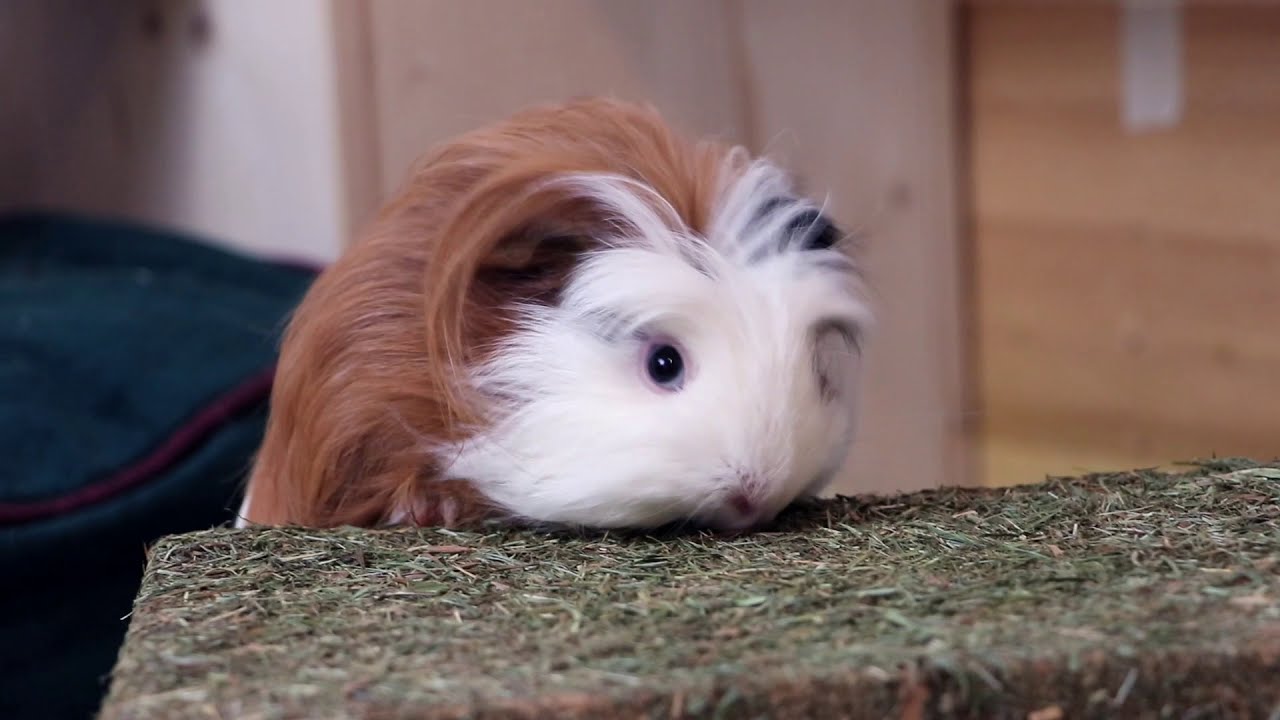The American guinea pig, also known as the domestic cavy, has been a beloved pet for over a century. These small rodents have captured the hearts of many with their adorable appearance and gentle personalities. From their humble origins in South America to their role in medical research and their current status as popular household pets, the American guinea pig has a rich history worth exploring. In this article, we will delve into the fascinating world of the American guinea pig, looking at its origins, unique characteristics, care requirements, and special place in the hearts of pet owners.
>> READ MORE:
- Welcome to the World Caring for Newborn Guinea Pigs
- Guinea Pig Bumblefoot Understanding the Condition
- Can Guinea Pigs Eat Celery?
- Abyssinian Guinea Pigs A Comprehensive Guide
Contents
- 1 History and Origins of the American Guinea Pig
- 2 Unique Characteristics of the American Guinea Pig
- 3 Care and Housing for American Guinea Pigs
- 4 Health and Common Health Issues in American Guinea Pigs
- 5 Breeding and Genetics of American Guinea Pigs
- 6 American Guinea Pig Shows and Communities
- 7 Conclusion
History and Origins of the American Guinea Pig

As mentioned earlier, the American guinea pig’s story begins in the Andes Mountains of South America, where they were originally domesticated by indigenous peoples for their meat and fur. It is believed that these small rodents were first kept as pets around 5000 BC, making them one of the oldest domesticated animals. The Incas, in particular, revered guinea pigs and even depicted them in their art.
It is unclear exactly when guinea pigs were brought to Europe, but they were first documented in Europe in the 16th century. They were initially referred to as “Indian rabbits” or “Peruvian hares.” However, the name “guinea pig” eventually stuck, most likely because they were sold for a guinea, a gold coin, in England.
In the late 19th century, the American guinea pig gained popularity as a laboratory animal due to their gentle nature and ease of breeding. They were used in various scientific experiments, including the study of infectious diseases and the testing of new drugs. However, it was not until the 20th century that the guinea pig made its way into American homes as a treasured pet.
Unique Characteristics of the American Guinea Pig

The American guinea pig has several distinctive features that make it stand out from other small rodents. One of the most noticeable characteristics is its soft, short fur, which comes in a variety of colors and patterns. These include solid colors like black, white, and brown, as well as multi-colored coats with spots or stripes.
Another unique feature of the American guinea pig is its adorable “popcorn” behavior. When they are excited or happy, these little creatures will run around in circles, jump, and even make small hops – just like popcorn! This endearing behavior is sure to bring a smile to any pet owner’s face.
In terms of size, the American guinea pig is larger than its cousin, the Peruvian guinea pig, but smaller than the Abyssinian guinea pig. On average, they can grow up to 8-10 inches in length and weigh between 1.5-2.5 pounds.
Care and Housing for American Guinea Pigs

One of the reasons why guinea pigs make great pets is because they are relatively low maintenance compared to other animals. However, this does not mean that they do not require proper care and attention. Here are some essential tips for keeping your American guinea pig healthy and happy:
Diet
First and foremost, it is crucial to provide your guinea pig with a balanced diet that consists mainly of hay, fresh vegetables, and a small amount of fruits. Timothy hay is recommended for adult guinea pigs, while alfalfa hay is suitable for younger ones. Fresh veggies such as kale, spinach, carrots, and bell peppers should also be a staple in their diet, along with a small amount of fruit, such as apples or strawberries. It is important to avoid sugary or fatty foods, as these can lead to health problems in guinea pigs.
Exercise
Guinea pigs are active animals and require adequate space to move around and exercise. A good guideline is to have at least 8 square feet of living space for one or two guinea pigs. This can include a large cage, an enclosed playpen, or even a designated area in your home where they can run freely, supervised, of course.
Socialization
American guinea pigs are social animals and thrive in pairs or small groups. Therefore, it is recommended to have at least two guinea pigs together, as long as they are introduced properly and have enough space for each other. However, it is essential to note that male and female guinea pigs should not be housed together unless one is neutered, as they will breed quickly.
Grooming
Due to their soft fur, American guinea pigs require regular grooming to keep their coats healthy and free of tangles and mats. A gentle brushing once or twice a week is usually sufficient, although longer-haired breeds may require more frequent grooming. It is also important to trim your guinea pig’s nails regularly to prevent them from getting too long and causing discomfort.
Health and Common Health Issues in American Guinea Pigs

Like all pets, American guinea pigs are susceptible to various health issues, some of which can be prevented or managed with proper care. Here are some common health problems to watch out for in guinea pigs:
Dental Issues
Guinea pigs’ teeth continue to grow throughout their lives, which can lead to dental problems if not kept in check. Providing them with hay and tough, fibrous vegetables like carrots can help wear down their teeth naturally. However, if you notice any signs of overgrowth or difficulty eating, it is essential to bring your guinea pig to the vet for a dental checkup.
Respiratory Infections
Guinea pigs can develop respiratory infections, which can be caused by various factors such as bacteria, viruses, or poor ventilation. Symptoms include sneezing, wheezing, and difficulty breathing. It is crucial to seek veterinary care immediately if you suspect your guinea pig has a respiratory infection as it can quickly become life-threatening.
Parasites
External parasites, such as mites and lice, are common in guinea pigs and can cause skin irritation and hair loss. Internal parasites, such as worms, can also pose a threat to your pet’s health if left untreated. To prevent these issues, it is essential to keep your guinea pig’s living area clean and to bring them for regular checkups with a veterinarian.
Breeding and Genetics of American Guinea Pigs

Breeding guinea pigs can be a rewarding experience, but it is important to do so responsibly. It is recommended to only breed your guinea pigs if you have the necessary knowledge and resources to do so. Here are some things to consider before breeding your American guinea pigs:
- Age: Guinea pigs are sexually mature at around 4-6 months old, but it is best to wait until they are at least 8 months before breeding.
- Pairing: As mentioned earlier, male and female guinea pigs should not be housed together unless one has been neutered. It is also important to note that females can become pregnant just a few hours after giving birth, so it is essential to separate males and females after mating.
- Gestation: The gestation period for guinea pigs is around 59-72 days, and a litter can range from 1-6 babies, known as pups.
- Genetics: If you are interested in breeding guinea pigs, it is essential to understand basic genetics, such as coat colors and patterns, to ensure healthy and genetically diverse offspring.
American Guinea Pig Shows and Communities
For some guinea pig enthusiasts, owning one or two furry friends is not enough. They show their love for these animals by participating in American guinea pig shows and joining online communities dedicated to these adorable pets. These shows typically include different categories such as best breed, best coat, and best personality. It is a fun way for guinea pig owners to showcase their pets and connect with other like-minded individuals.
Conclusion
In conclusion, the American guinea pig may have started as a scientific research subject, but it has since become a beloved household pet that brings joy and companionship to many families. Their unique characteristics, easy care requirements, and lovable personalities make them an ideal pet for children and adults alike. As long as they are given proper care and attention, these gentle creatures will continue to charm and delight pet owners for many more years to come.
